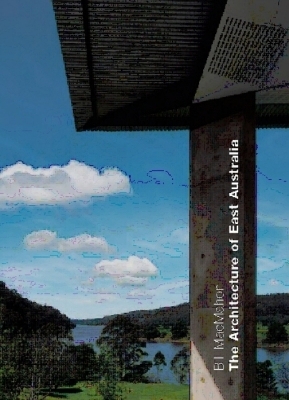
The Architecture of Australia
Edition Axel Menges (Verlag)
978-3-930698-90-5 (ISBN)
Der Band bietet einen umfassenden Überblick über den reichen baulichen Schatz der Stadt. Das Buch zeigt, wohin man gehen muß, um die besten Bauten und Innenräume zu sehen.
Aufgenommen wurden nicht nur die großen Bauwerke der etablierten Architekten der Stadt, sondern auch die kleinen Bars, Restaurants und Kunstgalerien der jungen Design- und Architekturgemeinde Sydneys sowie die verbliebenen Zeugnisse der voreuropäischen Kultur der Aborigines in der Bucht von Sydney.
Ein besonderes Kaoitel ist den Olympiabauten mit allen Details des olympischen Dorfes, des großen Stadions und der übrigen Einrichtungen gewidmet.
Spezielle Karten zeigen die Lage der Gebäude im Zentrum sowie auch die malerischen Bauten für die Freizeit an der Pazifikküste.
Darüber hinaus gibt das Buch Hinweise zum Besuch der Highlights der Architektur von Sydney mit öffentlichen Verkehrsmitteln einschließlich der Fährten im Hafen.
The architecture of East Australia (p. 9) "The future was dark and the past was dead As they gazed on the sea once more But a nation was born when the im mi grants said Good-bye! as they stepped ashore! In their lone li ness they were parted thus Because of the work to do, A wild wide land to be won for us By hearts and hands so few.The darkest land 'neath a blue sky's dome, And the widest waste on earth, The strangest scenes and the least like home In the lands of our fathers' birth, The lone li est land in the wide world then, And away on the fur thest seas, A land most barren of life for men And they won it by twos and threes!"Excerpt from How The Land Was Won by Henry Lawson (1867–1922)The story of Australian architecture is the story of the European expansion into and gradual possession of the Australian landscape. The story commences with European settlers who held the firm conviction that Australia was terra nullius, empty place. Their story is of migration, taking possession of and making do in a new land. The continent's original people could tell an alternative story, a story only recently listened to by architects, but it is not the story of this book.The architecture of these recent arrivals is the story of the individuals with an ambition to make a new place in the world. The buildings they left are the trace that tells the story of their successes and some times their deprivations. It al most al ways speaks of their aspirations.The European settlement of Australia commenced with the arrival of the first fleet in 1788. This was during the great period of European expansion that on one hand brought Christianity and European culture to the world and on the other opened up new commercial opportunities to the Europeans. As the British plied their ships across open oceans look ing for new lands so they crossed the open plains of the continent of Australia on foot, horse back and bul lock dray. Lit tle thought did they give to the rights of the in digenous population as they pushed out along the shores of the continent and then into the main land. Their fortune lay the way of accumulating farm lands and open ing up trade routes.Long would they toil to make the landscape economically productive.Yet the first fleet were merely the first of successive waves of migrants who continue to this day to arrive at Australian ports. Like the first set tlers today's migrants share a similar burden of having to make a place for them selves in a new world.A central theme of Austra ian architecture is this making do orvigorous adaptation of old ideas to new settings. Migrants to Australia, up until the 1970s, came mainly from Europe or were of a European origin. The ideas on which Australian architecture is based are still largely of a European or American basis. While not every good Australian architect was born or studied else where it is evident through a brief survey of the history of Australian architecture that, so far at least, the main events that make up the story of Australian architecture can be told by reference solely to architects born else where.
| Illustrationen | Siegfried J Gragnato |
|---|---|
| Zusatzinfo | ca. 250 Abb. |
| Sprache | englisch |
| Maße | 162 x 222 mm |
| Gewicht | 640 g |
| Einbandart | Paperback |
| Themenwelt | Reisen ► Reiseführer ► Asien |
| Schlagworte | Australien, Kunst; Architektur |
| ISBN-10 | 3-930698-90-0 / 3930698900 |
| ISBN-13 | 978-3-930698-90-5 / 9783930698905 |
| Zustand | Neuware |
| Haben Sie eine Frage zum Produkt? |
aus dem Bereich


